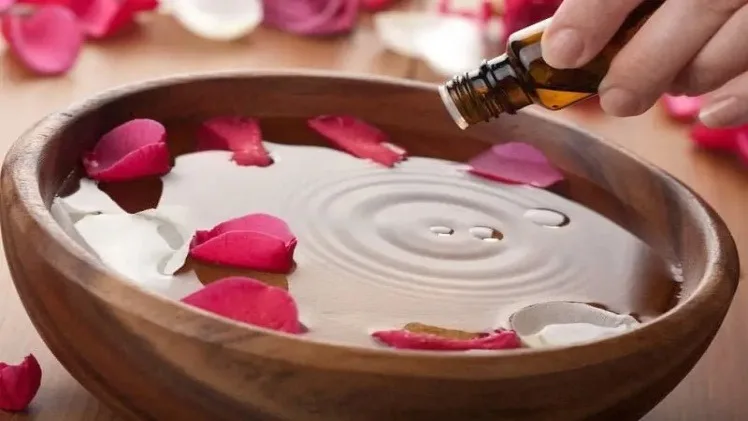For centuries, the captivating aroma and therapeutic properties of roses have been cherished in traditional medicine across various cultures. Rose essential oil, extracted from the petals of the Rosa damascena or Rosa centifolia species, has a rich history of medicinal use, dating back to ancient civilizations. In this blog, we delve into the fascinating journey of rose essential oil in traditional medicine, exploring its healing practices from ancient times to the present day.
The Romans carried on the tradition of using roses for medicinal and aromatic purposes. Rose essential oil has been used for its antimicrobial properties and was applied topically to treat wounds and infections.
Rose Essential Oil in Ayurveda:
In Ayurvedic medicine, roses are considered cooling and are used to balance excess heat or pitta dosha. Rose essential oil offers a positive impact on the heart and mind, promoting tranquility and clarity of thought. Ayurvedic practitioners may use rose essential oil for skincare, to support digestion, and to soothe inflammatory conditions.
Modern Uses of Rose Essential Oil in Aromatherapy:
In contemporary times, rose essential oil continues to hold a special place in aromatherapy. Its sweet, floral scent is widely appreciated for its ability to reduce stress, anxiety, and depression. In aromatherapy, rose essential oil is often used to enhance emotional well-being and promote relaxation.
Skincare Benefits:
Rose essential oil’s skin-nourishing properties make it a popular ingredient in natural skincare products. It helps to soothe irritated skin by providing effective hydration.
Hormonal Balance:
Rose essential oil is often used to support hormonal balance in women. It has also proven benefits to provide relief with menstruation and menopause, such as mood swings and menstrual cramps.
Digestive Support:
In some traditional medicine practices, rose essential oil is used to support healthy digestion and relieve digestive discomfort.
Antimicrobial Properties:
Rose essential oil has demonstrated antimicrobial properties, making it potentially beneficial in supporting the body’s defense against harmful microorganisms.
Safety Precautions:
- Rose essential oil is obviously safe to use but its important to use it with care and proper safety.
- Always dilute rose essential oil with a carrier oil before applying it to the skin to avoid irritation.
- Pregnant and breastfeeding women should consult a healthcare professional before using rose essential oil.
- As with any essential oil, a patch test should be performed on a small area of the skin to check for sensitivity.
Conclusion
Rose essential oil’s journey through traditional medicine is a testament to its enduring appeal and therapeutic qualities. From ancient civilizations to modern practices, rose essential oil has been treasured for its fragrance, beauty, and healing properties. Today, it continues to enrich our lives through aromatherapy, skincare, and various natural remedies.
Whether you seek emotional balance, physical wellness, or simply delight in its captivating aroma, rose essential oil remains a timeless and cherished treasure in the world of traditional medicine.
Discover the historical use of rose essential oil in traditional medicine, spanning ancient civilizations to contemporary practices. Explore its therapeutic benefits and timeless appeal in healing practices for mind, body, and spirit.



